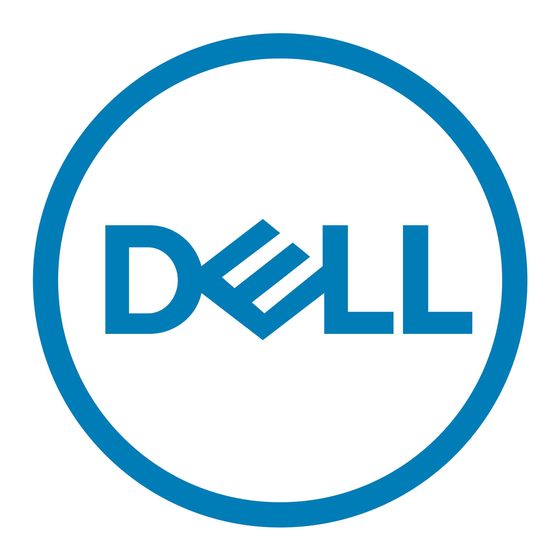Dell OpenManage Systems Build and Update Utility—The Dell System Build and Update Utility
(SBUU) provides one-to-one and one-to-many deployment and single-server update
capabilities in the pre-operating system environment.
Dell Update Packages—The Dell Update Packages (DUP) is a self-contained executable in a
standard package format that updates a software element on a Dell server such as the BIOS, a
driver, firmware and other software updates.
Dell OpenManage Deployment Toolkit—The Dell OpenManage Deployment Toolkit (DTK) is a
CLI-based tool that includes a set of utilities for configuring and deploying Dell PowerEdge
systems, and can be used to build scripted, unattended OS installations to deploy large numbers
of servers in a reliable fashion.
RACADM—The RACADM command-line utility provides a scriptable interface that allows you to
locally or remotely configure iDRAC7.
IPMITool—IPMITool includes scriptable console application programs used to control and
manage remote systems using the IPMI version 1.5 and later protocol.
Dell OpenManage easily integrates with several leading third-party consoles, including:
Dell Server Management Pack Suite for Microsoft System Center Operations
Manager (SCOM)—This suite of server management packs enables several functions through
System Center Operations Manager, including in-band discovery and monitoring of racks and
towers, out-of-band discovery and monitoring through iDRAC with Lifecycle Controller, as well
as performance and advanced monitoring.
Dell Lifecycle Controller Integration (DLCI) for Microsoft System Center Configuration
Manager (SCCM)—This pack contains Dell Lifecycle Controller Integration (DLCI), which
integrates OpenManage functions in SCCM to manage the Dell PowerEdge servers, including
auto-discovery, operating system deployment and configuration of hardware elements, (RAID,
NIC, BIOS, iDRAC), OS and hypervisor agnostic updates, firmware management, and system
viewer utilities.
Dell Server PRO Management Pack for Microsoft System Center Virtual Machine
Manager (SCVMM)—This pack manages Dell physical servers and hosts of virtual machines (VMs)
by using Microsoft System Center Operations Manager/System Center Essentials (SCOM/SCE)
and System Center Virtual Machine Manager (SCVMM). It provides guidance for remedial actions
based on alerts to best manage virtual machines and handle the impacts appropriately.
Dell Management Plug-in for VMware vCenter —This plug-in allows IT administrators to
monitor, provision, and manage the physical PowerEdge server hardware and firmware from a
dedicated Dell menu accessed through the VMware vCenter console using the same role-based
access control model as vCenter, combining physical server management.
BMC Software—Dell and BMC Software work together to simplify IT by ensuring tight integration
between Dell server, storage, and network management functionality and the BMC Software
process and data center automation products.
Dell OpenManage provides connections with many third-party consoles, including:
Dell OpenManage Connection for Computer Associates Network and
Systems Management—This connection allows you to monitor PowerEdge servers and
PowerVault storage arrays from within the Computer Associates Network and Systems
Management (CA NSM) console.

